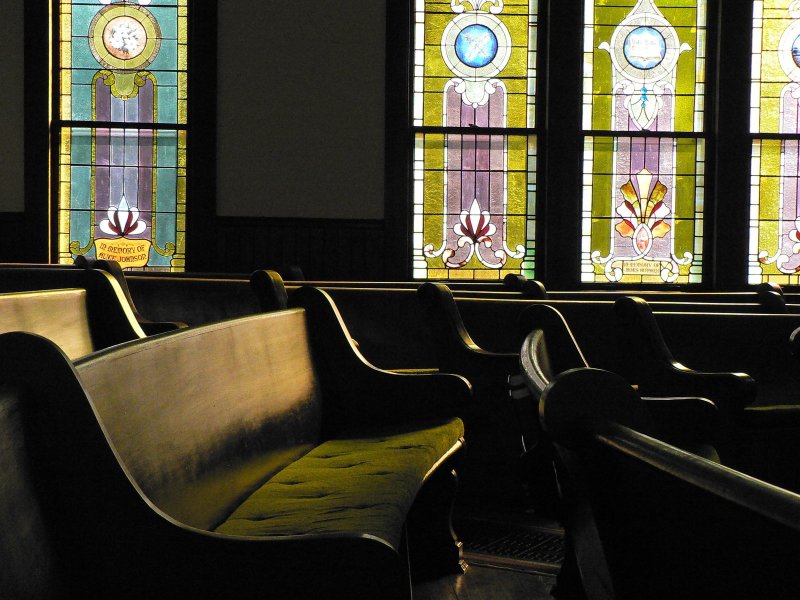
On hearing of Saddleback's decision to allow women to become pastors, some Southern Baptist ministers had conflicting opinions.
The Resolution on Ordination and the Role of Women in Ministry, passed by the SBC, draws on Paul's conduct in the ancient Roman church in its disapproval of women holding in pastoral positions.
But it was a startling turn of events when the SBC started ordaining female pastors for the first time on the 8th. The congregation even christened the evening as a "historic night" because three women had been ordained as ministers.
Notwithstanding, Saddleback's audacious step has sparked controversy among SBC pastors and Bible scholars.
The Southern Baptist Convention's president, J.D. Greear, called the vote by the California-based Saddleback Church to appoint three women as official ministers "disappointing." He encouraged the denomination to "stand on the bedrock of God's Word - whether the issue be the role of pastor or any other issue," reports Christian Post.
Greear, who also pastors The Summit Church in Raleigh-Durham, North Carolina, wrote on his blog on Monday that while he has "long respected Saddleback's ministry impact and heart for getting the gospel to the nations," he disagrees with their decision, calling it "disappointing."
He then quoted Pastor James Merritt, stating that it's possible to affirm both "that God calls men and women to vital ministry in the church" and "that God's Word clearly reserves the office of pastor/elder/overseer for qualified men."
For him and his church, the complementarian view was not merely an option, but "rather a biblical truth to be celebrated."
Greear is not the sole leader of the Southern Baptists to disagree with Saddleback's recent initiative.
Jack Graham, pastor of the Prestonwood Baptist Church in Plano, Texas, posted on Twitter: "I strongly oppose the ordination of women pastors as clearly taught in the Scriptures and practice NT churches. It is a big deal I assure you and a growing problem in the SBC."
Jason Keith Allen, President of Midwestern Baptist Theological Seminary, dubbed Saddleback's decision a "disappointing" deviation from the Scriptures.
He tweeted Sunday: "This is a disappointing departure from the clear teaching of Scripture, the BF&M, & long-held SBC consensus & practice. I Tim 3 & Titus 1 list qualifications, not suggestions. Let's hold fast to Scripture."
Albert Mohler Jr., President of the Southern Baptist Theological Seminary, observed that many SBC churches such as Saddleback have endorsed women as preachers or pastors. He said that the denomination would make known to all associated churches the standards of denominational cooperation.
"In an increasing number of cases, it is now clear that some churches, including quite large and well-known churches, are placing women in the office of pastor in direct violation of our confession of faith. Further, a number of churches that are at least listed as Southern Baptist welcomed and advertised women preaching in the morning service," he said.
"The Southern Baptist Convention must not be unclear about our theological convictions and the ground of our cooperation. We cannot afford to be. Attempts to deny the issue will not work. Right now, Southern Baptists will decide if we will redefine the doctrine of the Southern Baptist Convention. I do not believe that Southern Baptists will allow this to happen. I do not believe that Southern Baptists will retreat from the truth," he added.
On the flip side, Pastor Dwight McKissic, who leads the Cornerstone Baptist Church in Texas, argues on Twitter that the subject is not as straightforward as conservative pastors suggests.
Responding to Allen's tweet, he wrote: "If the Scripture is 'clear' as you say, then Graham, Warren, & whoever let a woman preach in SWBTS, wouldn't have done so."
"My point is, the SBC has never, ever declared Saddleback's, Billy [Graham] or the Texas pastor where Beth Moore preached yesterday, wrong. Therefore, it's technically not true, thus, inaccurate for Dr. Allen, or anyone else to claim the SBC officially forbids a woman from preaching," he added.
Bible scholar Beth Moore, who hit the headlines earlier this year as she withdrew from the SBC, stirred controversy in the course of 2019 when she said that while complementary theology does not actually lead violence in the Church, very few women in authority led directly to the church sexual abuse scandal.
She also argued that the SBC set so many limitations on female positions in churches, and that it actually hindered promotion of the gospel by obsessing over the issue. Moore later released an apology statement for her involvement in making complementarian theology a "matter of 1st importance."




















